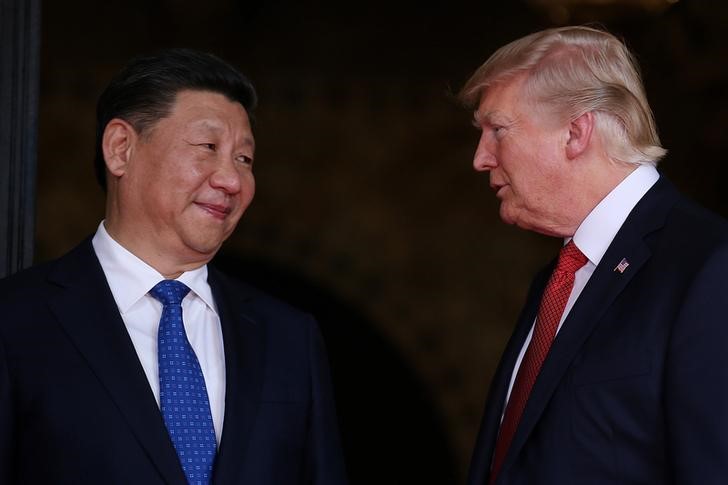(Bloomberg) -- Sausages, ketchup and mustard, plastic plates — all essential ingredients for Americans tending to their grills this Labor Day weekend. Soon they’ll be 15% more expensive to import from China.
The picnic products are just a sampling of the more than 3,200 categories of Chinese goods targeted for the new tariff starting Sunday, barring a last-minute flinch by President Donald Trump. It’s the next escalation of a trade war between Washington and Beijing that will add import taxes on about $112 billion in Chinese imports, including many consumer food items, household goods and apparel. It’ll also be a good stress test of the strongest pillar of the U.S. economy at the moment: consumers.
In the days leading up to the next wave of U.S. levies, China is calling for calm and more talks. No details had emerged as of early Friday in Washington about a call between officials that Trump said was supposed to happen on Thursday. Meanwhile, he’s getting an earful from a wider circle of critics closer to home:
- Turning up his already loud megaphone this week was Thomas Donohue, chief executive officer of the U.S. Chamber of Commerce. The head of the largest lobbying group for American businesses called for ceasefire and a return to talks.
- A large majority of the American companies that are members of the U.S.-China Business Council said they’re committed to China over the long term and don’t plan to leave, according to a survey the group released Thursday.
- A coalition of more than 150 trade associations is making a last-ditch plea to postpone duties on other goods that take effect Sunday, saying they “come at the worst possible time” and that holiday purchases will still be affected.
- U.S. stocks look poised to end a four-week skid on hopes that cooler trade heads prevail. The bond market isn’t sending such an optimistic signal: The yield on 10-year Treasuries has lost about a half percentage point in August, the steepest monthly drop since January 2015.
Charting the Trade War
The U.S. merchandise-trade deficit unexpectedly narrowed in July to a three-month low as exports picked up and imports declined.
Coming up:
- Sept. 1: South Korea trade balance for August
- Sept. 4: U.S. trade balance for July
